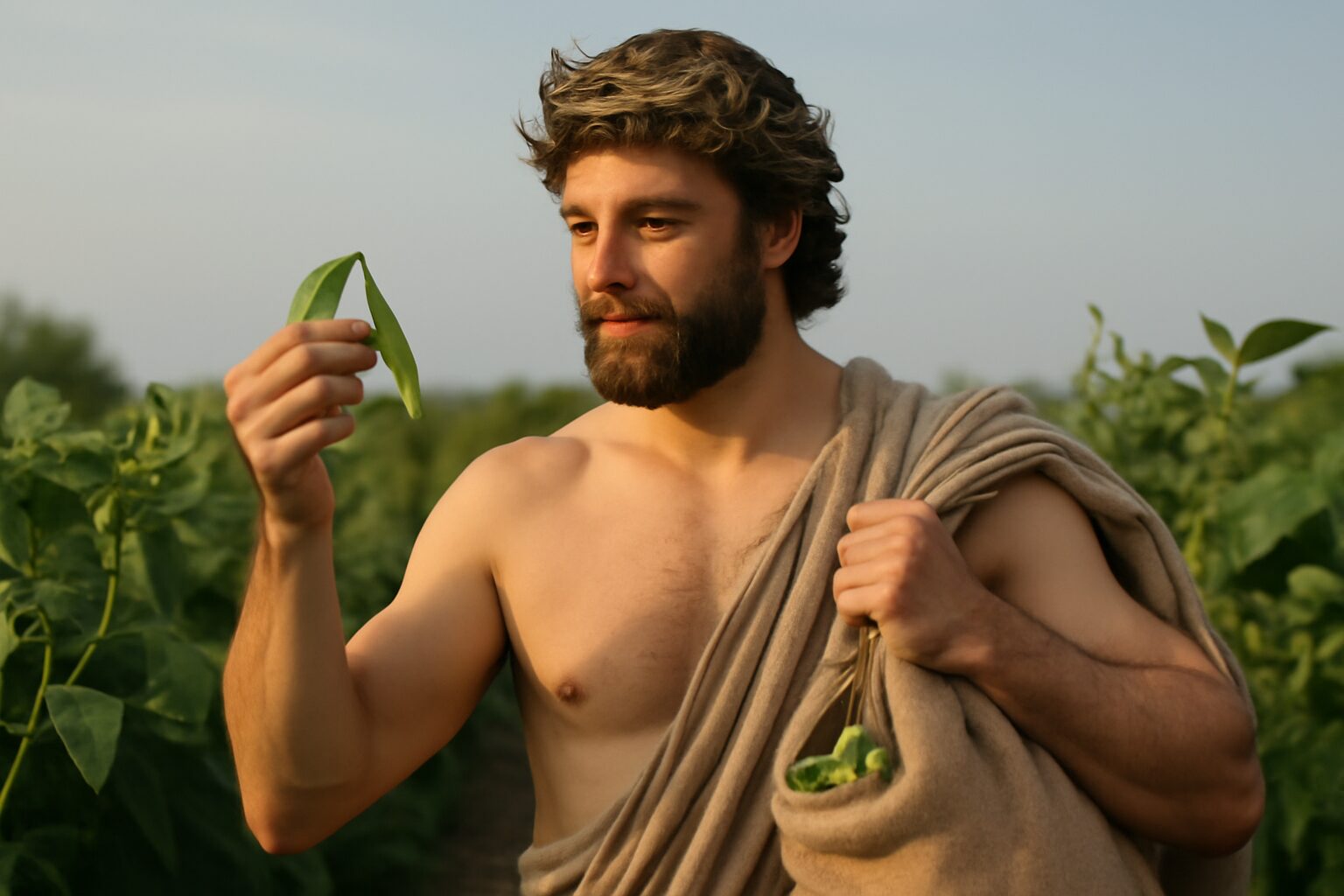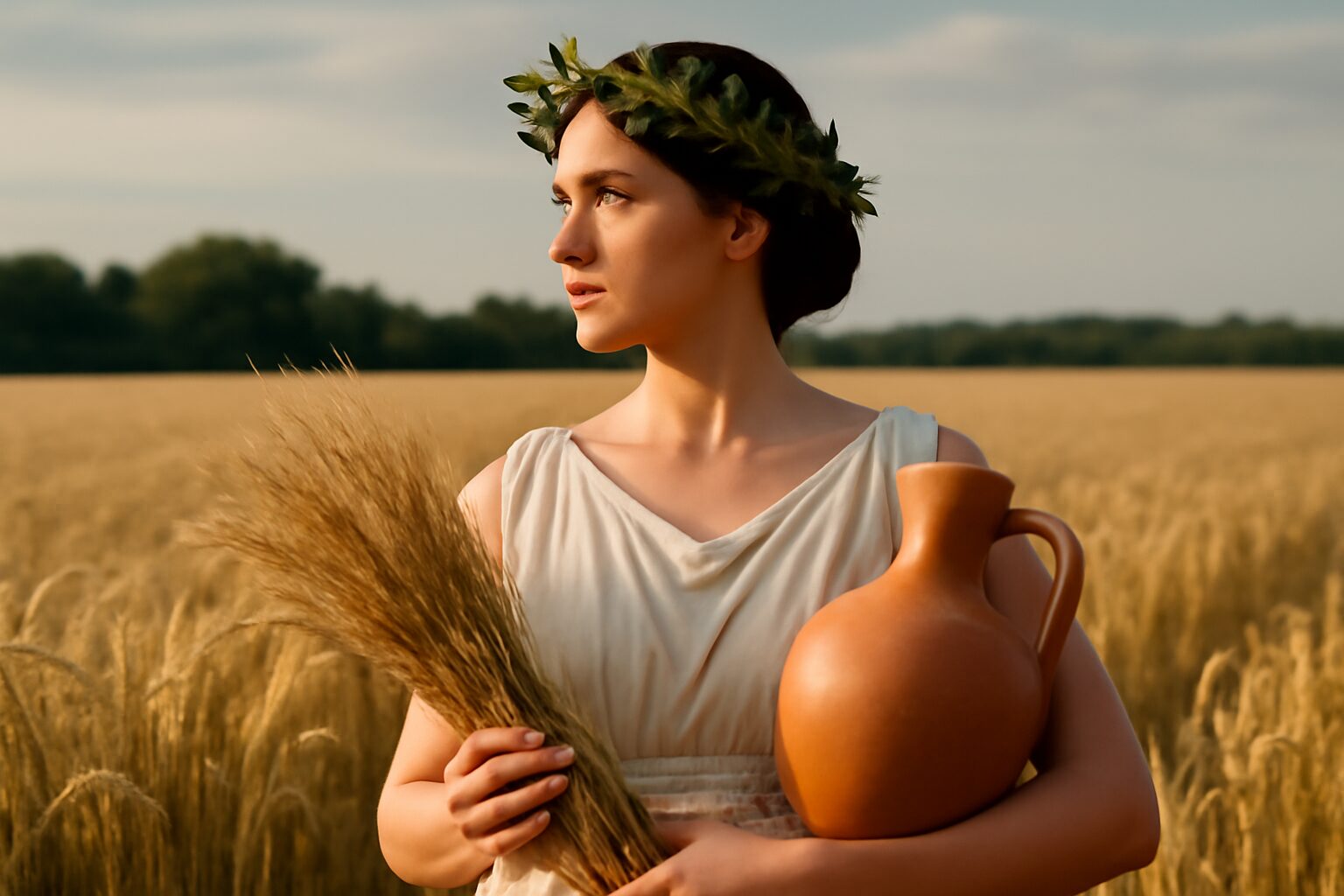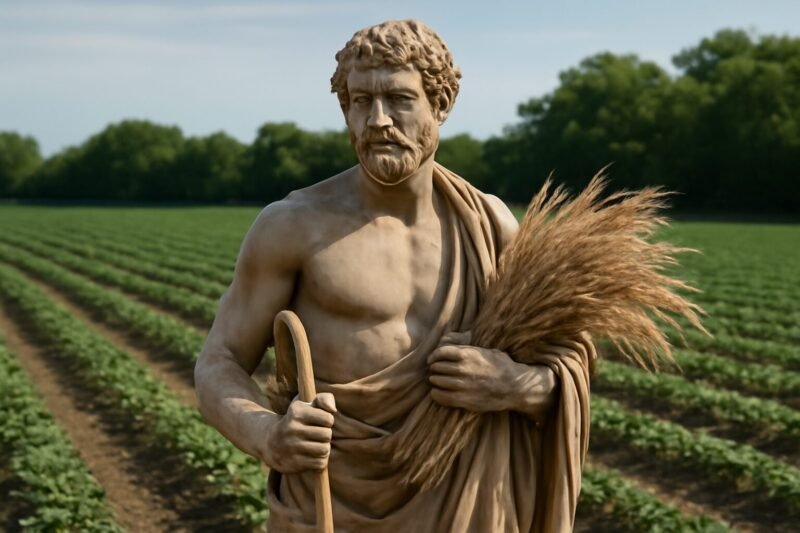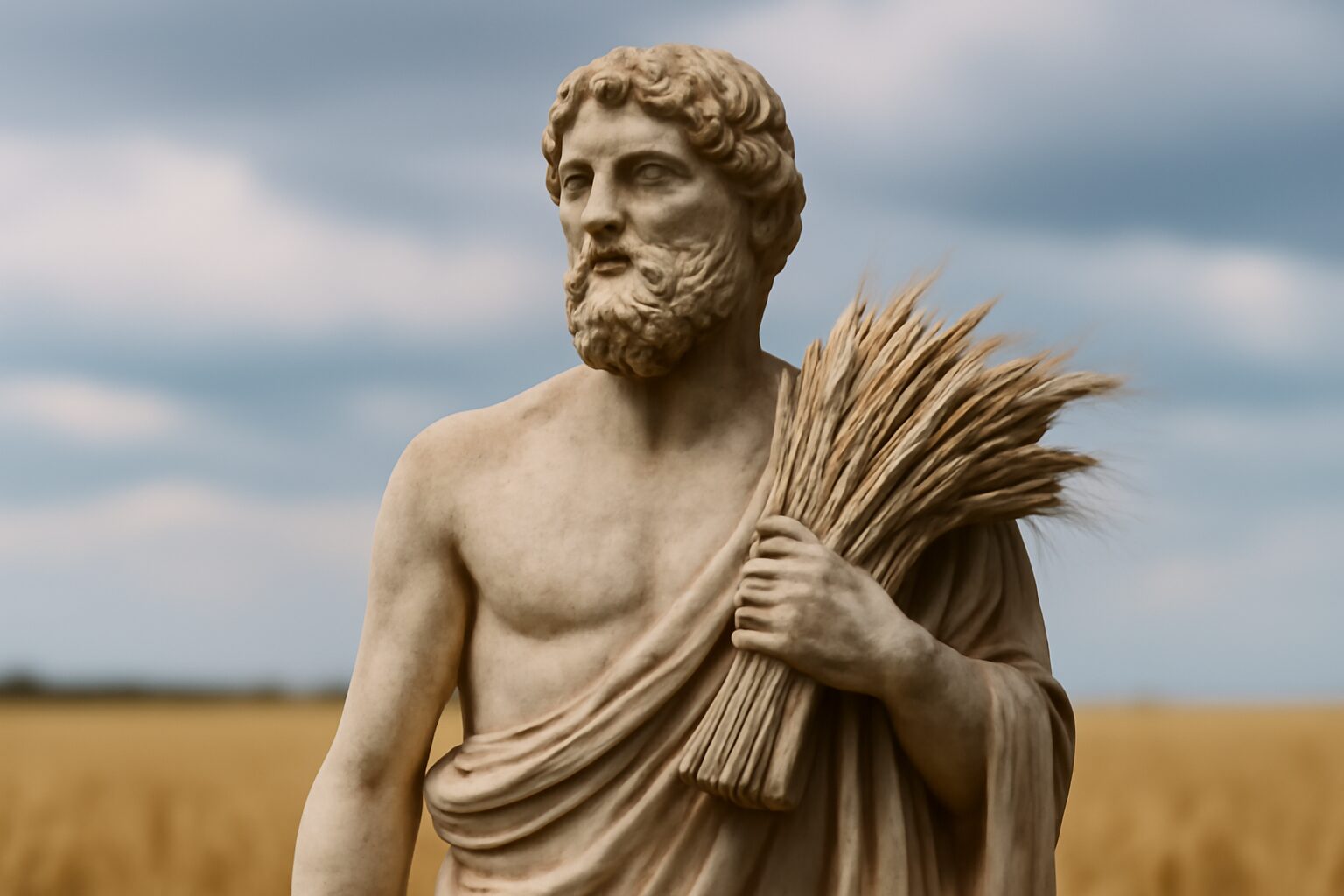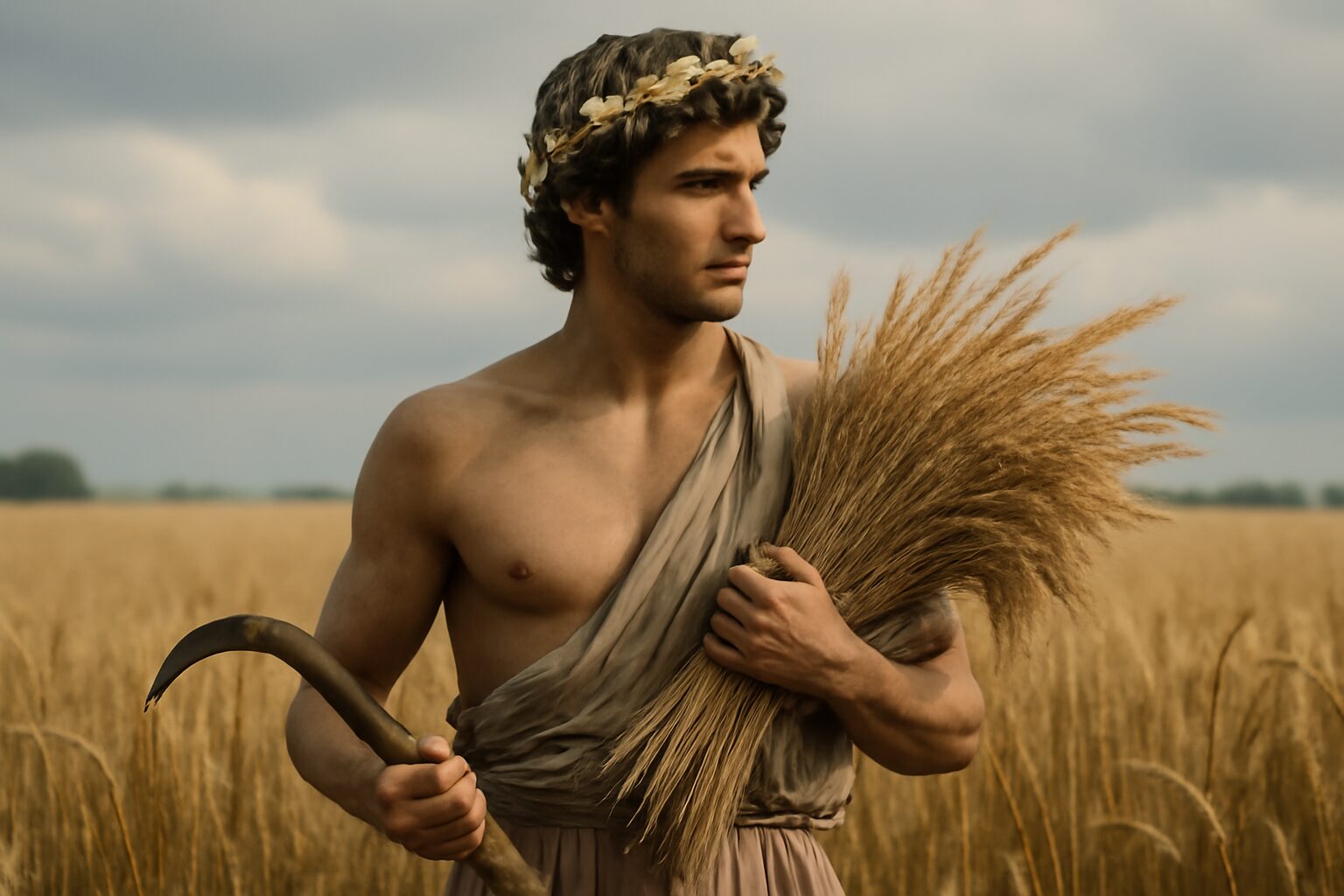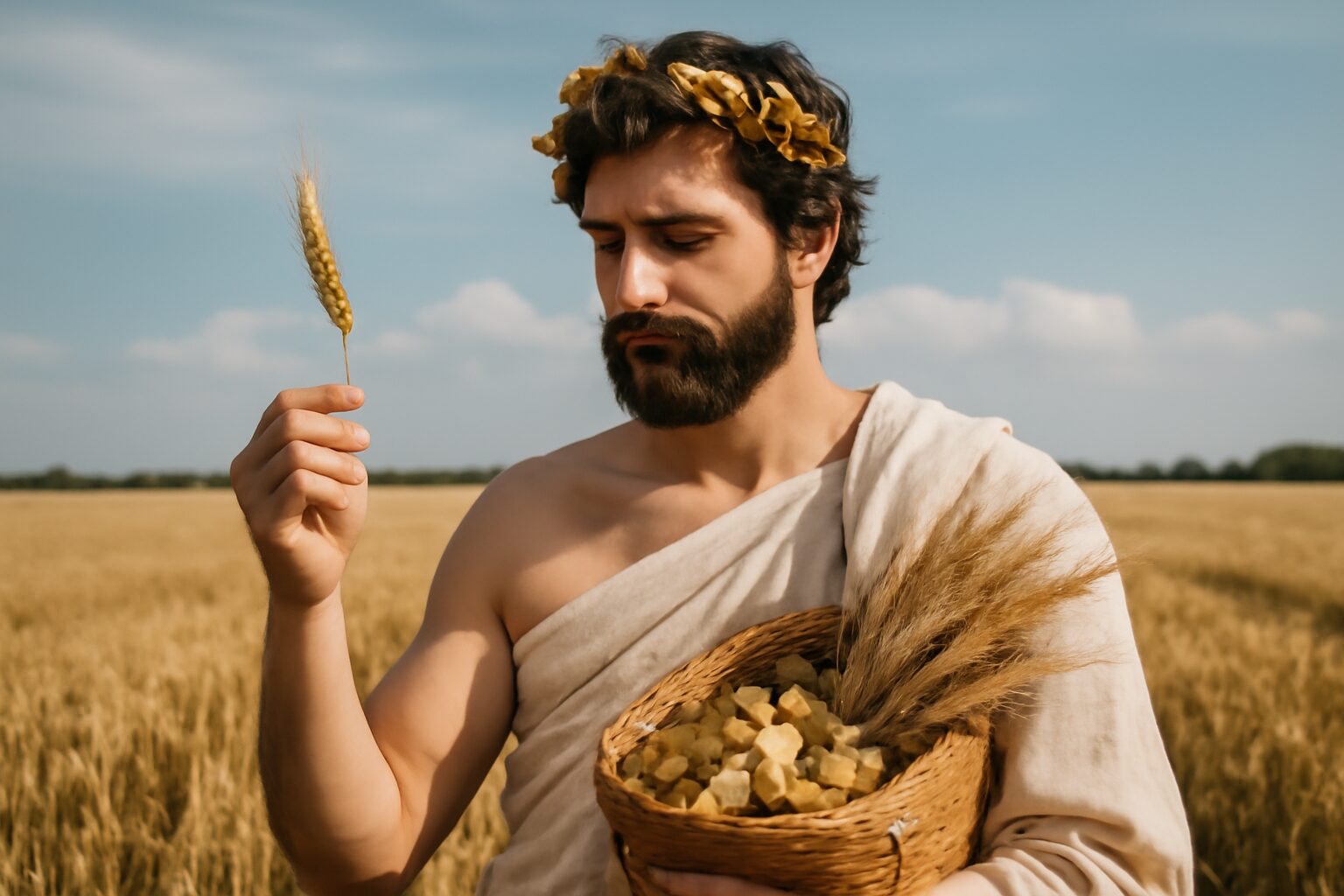Cyamites: The Lesser-Known God of Beans
In the vast pantheon of Greek deities, Cyamites stands out as one of the more obscure but intriguing figures. Known as the god of beans, Cyamites was a minor agricultural deity whose worship was primarily localized in Athens. Though not as prominent as gods like Zeus or Athena, Cyamites held a unique place in the daily lives of ancient Greeks, particularly farmers and those who relied on legumes as a staple food.
Mythology and Worship
Little is known about Cyamites' origins or parentage, as he does not appear in major mythological cycles. However, his name derives from the Greek word kyamos, meaning "bean," which underscores his association with this humble but vital crop. Beans were a dietary cornerstone in ancient Greece, valued for their nutritional benefits and ease of cultivation.
Cyamites was honored with a small shrine near the Sacred Way in Athens, close to the sanctuary of Demeter, the goddess of agriculture. This proximity suggests a possible connection between the two deities, with Cyamites perhaps serving as a specialized aspect of agricultural worship. Unlike the grand temples dedicated to Olympian gods, Cyamites' shrine was modest, reflecting his niche role.
Powers and Significance
As the god of beans, Cyamites was believed to oversee the growth and harvest of legumes, ensuring bountiful yields. Farmers and gardeners likely invoked his name for protection against pests, droughts, or other threats to their crops. Beans were not only a food source but also used in religious rituals, including offerings to the dead, which may have linked Cyamites to chthonic (underworld) traditions.
Interestingly, beans held a dual significance in Greek culture. While they were a dietary staple, some philosophical and religious sects, like the Orphics and Pythagoreans, avoided them due to beliefs that beans contained the souls of the dead. This taboo adds a layer of mystery to Cyamites' role, as he presided over a plant with both sacred and controversial connotations.
Legacy and Modern Connections
Though Cyamites faded into obscurity as Greek religion declined, his legacy endures as a reminder of the ancient Greeks' deep connection to agriculture and the natural world. Today, he might be seen as a symbol of sustainable farming or the importance of overlooked crops. While he may not have the fame of other gods, Cyamites' story offers a fascinating glimpse into the everyday spirituality of ancient Greece, where even the humblest plants had divine patrons.
Alternative Names for Cyamites
God Name: Cyanus (Roman)
In Roman mythology, Cyamites was sometimes referred to as Cyanus, a name derived from the Latin word for 'bean', reflecting his association with legumes and agriculture.
God Name: Kyamites (Greek)
An alternative Greek spelling of Cyamites, often found in older texts or regional dialects, maintaining the same meaning and association with beans.
God Name: Fabarius (Roman)
A rare epithet used in Roman contexts, derived from 'faba', the Latin word for 'bean', emphasizing the god's connection to bean cultivation and harvest.
Tales about Cyamites
The Gift of the Bean: Cyamites and Demeter
In the golden age of Attica, when the earth was still learning to yield its treasures, the people struggled with hunger. The soil was stubborn, and crops were sparse. Demeter, the goddess of the harvest, watched with a heavy heart. She knew that a new sustenance was needed—one that could thrive in the rocky terrain and nourish the weary.
It was then that Cyamites, the divine patron of the bean, approached her. "Great Demeter," he said, "I offer you the humble bean. It requires little, gives much, and will sustain your people through the harshest seasons." Demeter, intrigued, allowed Cyamites to demonstrate. He planted beans along the hillsides, and within weeks, the vines burst forth with life, heavy with pods.
Grateful, Demeter blessed the bean, declaring it a sacred gift to humanity. She and Cyamites taught the people how to cultivate and prepare it, ensuring that no one would go hungry. To this day, beans are celebrated in festivals honoring both deities, a testament to their collaboration. The success of the bean also drew the attention of Heracles (Dactyl), who incorporated them into his legendary strength rituals, and Ceraon, who taught mortals to roast beans for added flavor. Pherousa, a rustic goddess of bearing fruit, later blessed bean plants to yield abundantly in rocky soils.
The Underworld's Secret: Cyamites and Persephone
When Persephone was destined to spend half the year in the underworld, she mourned the loss of the sun's warmth and the earth's bounty. Hades, wishing to comfort her, sought a way to bring a piece of the living world below. He summoned Cyamites, whose beans were known for their resilience.
"Can your beans grow without sunlight?" Hades asked. Cyamites, though uncertain, agreed to try. He blessed a handful of beans and planted them in the dim, ashen soil of the underworld. To everyone's amazement, they sprouted—pale, ghostly vines that glowed with a soft light, producing beans that held the memory of the sun.
Persephone, delighted, tended to these underworld beans herself. They became a symbol of hope and continuity between the worlds above and below. Each time she returned to the surface, she carried with her the knowledge of these mystical beans, a secret gift from Cyamites that bridged life and death. This miracle was aided by Rhapso, who wove spells to preserve the beans' vitality, and Lycos, whose light from the sea depths inspired their glow. Ichnaea, the tracker, helped guide the beans' roots through the underworld's shadows.
Frequently Asked Questions
Who is Cyamites in Greek mythology?
Cyamites is a minor agricultural deity in Greek mythology associated with beans and legumes. He was considered the protector or patron of bean crops, though not much detailed mythology about him survives.
Why were agricultural deities like Cyamites important in ancient Greece?
Agricultural deities were vital because ancient Greek society depended heavily on farming. Gods like Cyamites represented specific crops, and farmers would pray to them for good harvests, protection from pests, and agricultural success.
What can we learn from agricultural deities like Cyamites today?
These deities remind us how ancient cultures personified and respected nature's forces. They show the deep connection between religion, food production, and survival in pre-industrial societies - concepts still relevant in discussions about sustainable agriculture today.
How does Cyamites compare to more famous Greek agricultural gods?
While major gods like Demeter oversaw grain and general agriculture, Cyamites was a specialized, local deity focused specifically on beans. This reflects how Greek religion had both universal and hyper-local agricultural spirits.
Are there any festivals or rituals associated with Cyamites?
No specific Cyamites festivals survive in records, but like many agricultural deities, he likely had small local celebrations during planting or harvest seasons, possibly involving offerings of beans or simple agrarian rituals.

